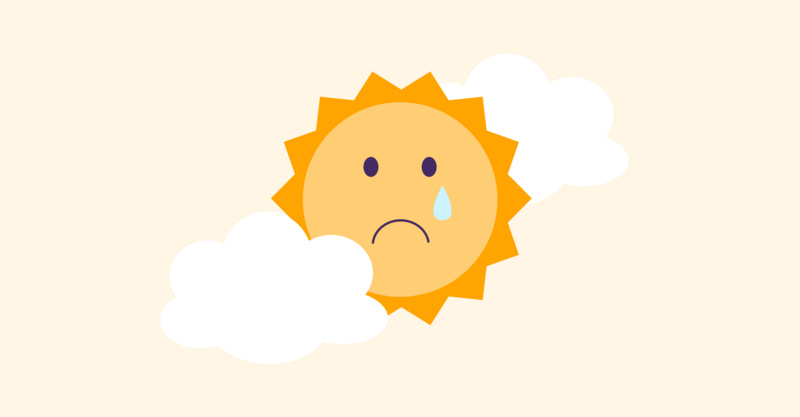Key Points
- Stress and burnout rates are increasing in the U.S., with financial hardships and global uncertainty being the main stressors. The U.S. Surgeon General has also declared a loneliness and isolation epidemic, making mental health care crucial.
- There are four main types of therapy: Cognitive, Behavioral, Humanistic, and Mindfulness. Each type has its own focus and benefits, from changing negative thought patterns to increasing self-awareness.
- Symptoms of poor mental health can be subtle and may include feeling sad, losing interest in activities, difficulty sleeping, and changes in appetite. Therapy is recommended for those experiencing these symptoms and can also be beneficial for maintaining good mental health.
- Finding the right therapist involves considering insurance coverage, researching a therapist's specialty, and reading reviews. Lower-cost or virtual therapy options may be available for those without insurance coverage.
- When choosing a therapist, it's important to ask questions about their experience, approach to cultural sensitivity, therapy goals, fees, and policies. This can help ensure they are a good fit for your needs.
Stress and burnout are on the rise, but putting your mental health first can help
If you’ve been feeling overwhelmed, anxious, or stressed out, you’re not alone. Stress and burnout are reaching all-time highs in the United States, according to reports from the World Health Organization.
Now on the heels of the COVID-19 pandemic, 87% of Americans say that money and inflation-related hardships are the biggest sources of stress in their lives. This is according to a wide-range survey conducted by the American Psychological Association (APA) in 2022—a study that also noted global uncertainty as a big stressor for 81% of people.
With the US Surgeon General declaring a loneliness and isolation epidemic in 2023, finding a good mental health provider is more important than ever. We’ve put together a guide to help you find the right therapist for your mental health needs.
Different Types of Therapy
Finding the right therapist starts with getting an understanding of the different types of therapy that are available to you and the benefits of each. There are four main types of therapy, outlined by the APA.
- Cognitive Therapy - A type of therapy that focuses on changing negative thought patterns to improve mental health.
- Behavioral Therapy - Therapy that focuses on learning skills to manage emotions and improve relationships.
- Humanistic Therapy - A therapy approach that can help you make rational choices and develop to your fullest potential (you’ll often find this type of therapy marketed as a “life coach” or “business coaching”).
- Mindfulness Therapy - Mindfulness-based therapy focuses on being present in the moment and increasing your awareness of yourself.
When to Consider Getting Therapy
If you are experiencing any symptoms of depression, anxiety, or poor mental health, the National Institute of Mental Health recommends that you seek therapy. The problem is, sometimes the symptoms of these conditions are not obvious—so you may find yourself wondering if you really need a therapist or not. Here are some sneaky symptoms that you may not realize are associated with mental health, according to the American Psychiatric Association.
Symptoms of Depression
- Feeling sad, “empty”, “hopeless”, or feeling like you’re “in a rut, and cannot get out”
- Losing interest in activities you used to find joy in
- Feeling tired, uninspired, lazy, or slowed down
- Difficulty sleeping or oversleeping
- Changes in your appetite or weight
- Feelings of worthlessness or guilt, especially when it comes to parenting, your job, or relationships
- Difficulty concentrating, making decisions, or remembering things
- Thoughts of death or suicide
Symptoms of Anxiety
- Worrying about or being fearful of everyday situations
- Restlessness, irritability, or “feeling on edge”
- Muscle tension, trembling, or twitching
- Difficulty sleeping or staying asleep
- Difficulty concentrating or like your mind going blank
- Feeling tired frequently
- Panic attacks (a sudden and intense feeling of fear)
Symptoms of Declining Mental Health
More reasons why you may want to consider therapy, according to the Mayo Clinic include:
- Difficulty coping with stress, change, or loss
- Relationship problems or difficulty communicating with others
- Low self-esteem or negative self-talk
- Substance abuse or addiction
- Eating disorders or distorted body image
- History of trauma or abuse
Other Benefits of Therapy
Many people think that if you’re not experiencing signs of poor mental health, you don’t need therapy—however, therapy is a great way to avoid a decline in mental health or a mental health crisis. The science behind therapy outlined at MentalHealthAmerican.org outlines ways that therapy can help you with a multitude of things, including:
- Understanding yourself better
- Strengthening your relationships
- Overcoming bad habits
- Improving concentration and focus
- Regulate your emotions
- Lowering your chances of experiencing symptoms of anxiety, depression, PTSD, and other mental health conditions
How to Find a Great Therapist
Before you start your search, it's important to consider your insurance coverage. Some insurance plans cover therapy, while others don't. If your plan covers therapy, you'll want to start your search for a therapist who is in-network—this can help you lower your out-of-pocket costs. If your plan doesn't cover therapy, you can start your search with several lower-cost or virtual options.
Lower-Cost or Virtual Therapy
Lower-cost therapy options may be available through your community mental health center or public health. Many of these centers charge sliding-scale fees, based on income.
With a rise in popularity during the pandemic, more clinics are offering virtual therapy visits than ever before. This is a convenient option for those who live in remote areas or have mobility issues.
Picking the Right Therapist
When you’re first researching therapists, it's important to look at what their specialty is, what credentials they have, and any reviews they have.
A therapist's specialty can help you decide if they have experience working with the issues you'd like help with, such as:
- Cognitive and behavioral therapy
- Addiction therapy
- Relationship therapy
- Grief counseling
Reviews from other patients are a great way to find out what to expect when working with a particular therapist.
10 Questions to Ask Your New Therapist
When you’ve found a potential therapist, it's important to ask them questions to see if they're a good fit for you. Some questions you may want to ask, in part suggested from Choose Mental Health, include:
- What is your experience working with people who have similar issues to mine?
- What is your approach to cultural sensitivity (such as working with members of the BIPOC or LGBTQIA+ community)?
- How long do you typically work with patients?
- How do you and your patients decide on goals for therapy?
- How do you measure success?
- What are your fees and do you offer a sliding scale?
- Do you offer virtual therapy sessions?
- What is your policy for emergency sessions?
- What is your cancellation policy?
- How should I prepare for each of my therapy sessions?
Frequently asked questions
What are the main sources of stress for Americans according to the American Psychological Association?
The main sources of stress for Americans are money and inflation-related hardships, and global uncertainty, as per the American Psychological Association's 2022 survey.What are the four main types of therapy outlined by the APA?
The four main types of therapy outlined by the APA are Cognitive Therapy, Behavioral Therapy, Humanistic Therapy, and Mindfulness Therapy.What are some symptoms of depression as noted by the American Psychiatric Association?
Symptoms of depression include feeling sad, losing interest in activities, feeling tired or slowed down, experiencing difficulty sleeping or changes in appetite, feelings of worthlessness or guilt, difficulty concentrating, and thoughts of death or suicide.What are some symptoms of anxiety as per the American Psychiatric Association?
Symptoms of anxiety include worrying about everyday situations, restlessness, muscle tension, difficulty sleeping, difficulty concentrating, feeling tired frequently, and experiencing panic attacks.What are some signs of declining mental health according to the Mayo Clinic?
Signs of declining mental health include difficulty coping with stress, relationship problems, low self-esteem, substance abuse, eating disorders, and a history of trauma or abuse.What are some benefits of therapy even if you're not experiencing signs of poor mental health?
Therapy can help in understanding yourself better, strengthening relationships, overcoming bad habits, improving concentration and focus, regulating emotions, and lowering chances of experiencing symptoms of mental health conditions.What are some factors to consider when searching for a therapist?
When searching for a therapist, consider your insurance coverage, whether the therapist is in-network, their specialty, their credentials, and reviews from other patients.What are some questions to ask a potential therapist to see if they're a good fit?
Questions to ask a potential therapist include their experience working with similar issues to yours, their approach to cultural sensitivity, how long they typically work with patients, how they decide on therapy goals, how they measure success, their fees, whether they offer virtual sessions, their policy for emergency sessions, their cancellation policy, and how to prepare for each therapy session.
Solv has strict sourcing guidelines and relies on peer-reviewed studies, academic research institutions, and medical associations. We avoid using tertiary references.


 LinkedIn
LinkedIn










